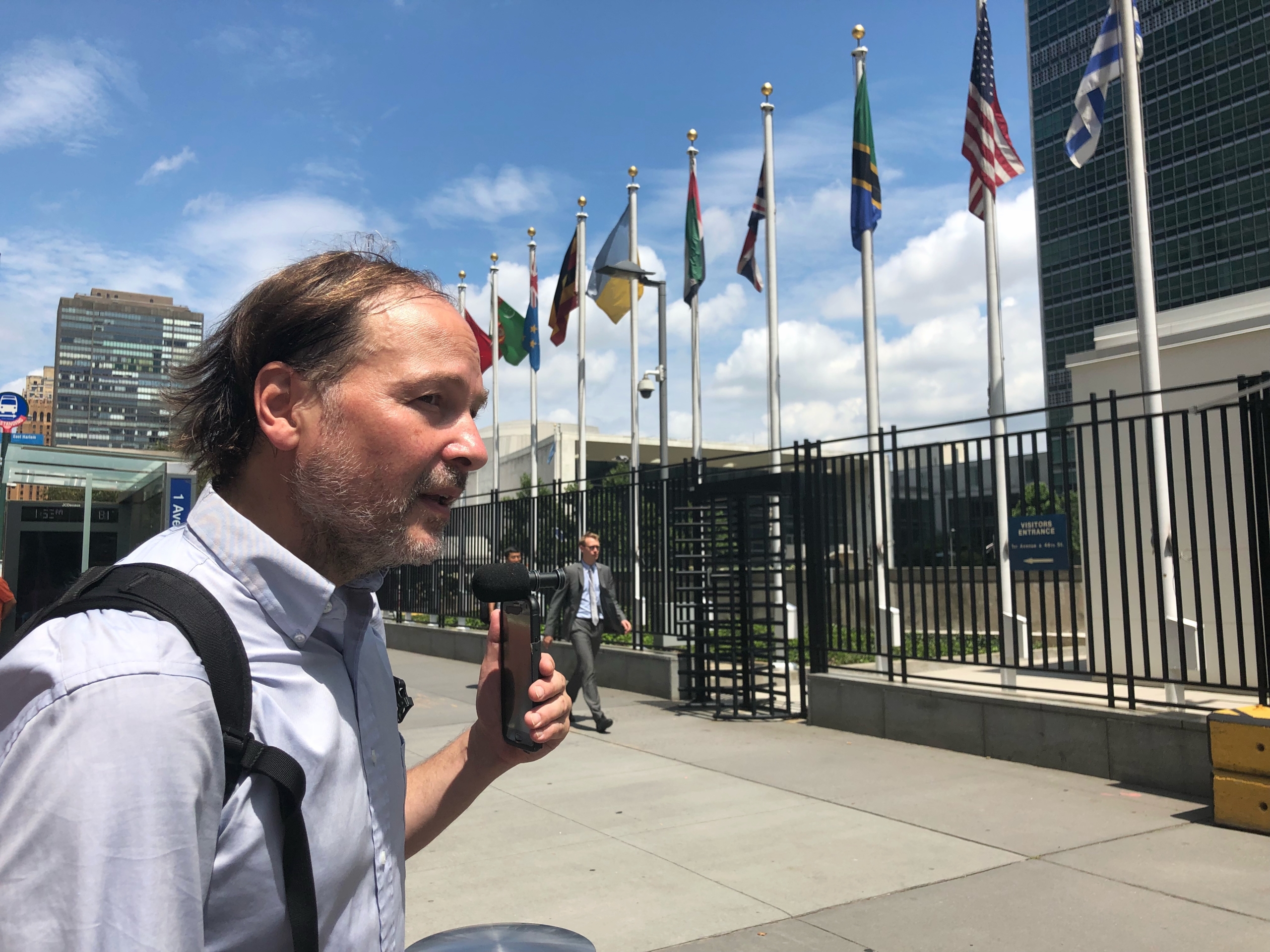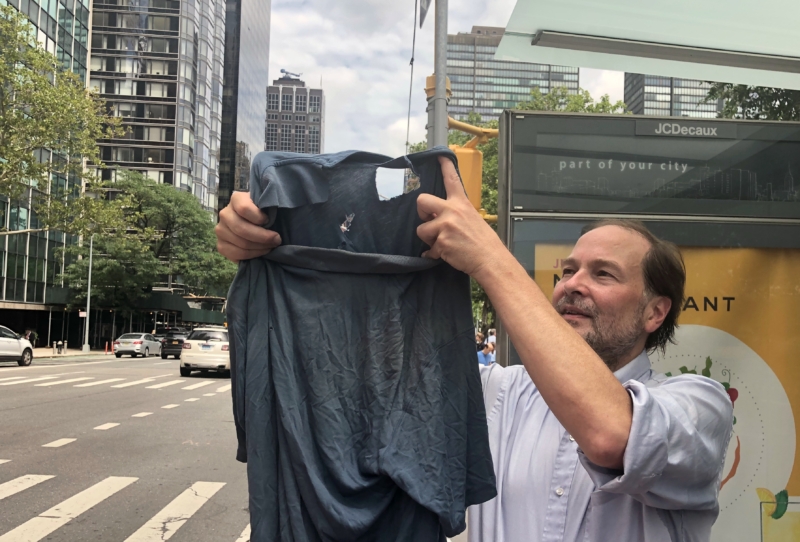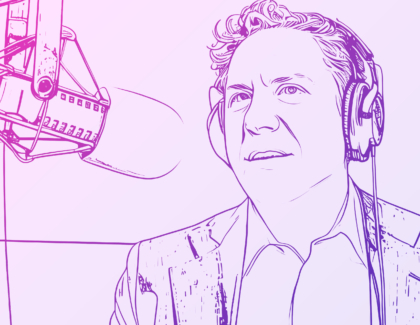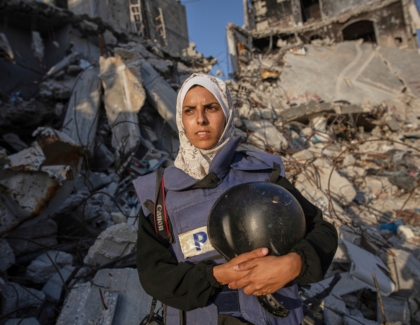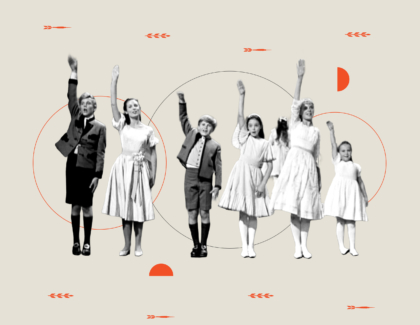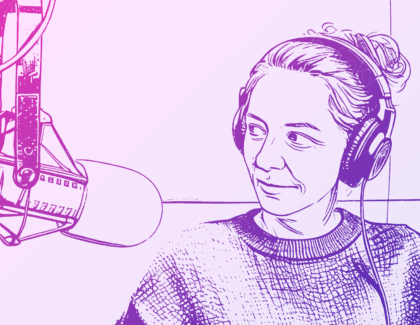Sign up for the daily CJR newsletter.
Last March, Matthew Lee, an independent reporter, trained his phone’s camera on the 36th floor of the United Nations Secretariat Building. For more than a decade, Lee has been covering every inch of the UN for his self-made blog, Inner City Press, read widely by journalists on the diplomacy beat—if sometimes skeptically. “Matt plays an important role in being a gadfly,” a member of the UN press corps says. “Everyone thinks he’s nuts, but everyone reads him,” says another. Lee, who is 52, posts as many as 10 articles a day; favorite subjects are whether António Guterres, the secretary-general, is corrupt (“His wife still lives in Portugal. Who’s paying for his trips back home? He’s on vacation right now, where is he?”), and the integrity of Alison Smale, a former journalist now working for the UN’s department of public information (“She’s only interested in press that makes the UN look good”). Lee sees UN misdeeds “almost everywhere.”
On that spring day, Guterres had declared that the UN would participate in Earth Hour, an annual initiative to turn off non-essential electric lights from 8:30 to 9:30pm. But Lee noticed that someone’s corner office was illuminated. With his camera streaming via Periscope, he kept watch. “This is just the superficiality,” he said. “The problem is, the UN doesn’t live up to its principles.” Next, he checked the Malaysian mission—lights on there, too. “All right, we’re going to head up First Avenue,” he said. He hopped on his bike and rode north. “Look at the flags, and now beyond the flags, look at the hypocrisy. Fraud, fraud, fraud.” Turning onto Sutton Place, he stopped in front of the secretary-general’s house. A few lights were lit on the ground floor. “A $15 million mansion owned by the UN,” he said. “There is no Earth Hour at Casa Guterres.”
More than a year later, Lee, in gray slacks and a blue button-down, was working from a bus stop outside the delegates’ entrance to the UN. Ever-determined to get his story, tensions with the secretary-general’s office had escalated. First, Lee had been caught in an interpretation booth at the back of a meeting room. (Lee says he wasn’t hiding, he had retreated there to stream a conference that he should have been invited to.) Then, early this month, he’d been busted for “staking out” a budget meeting. Guards handled him forcibly enough to injure his arm, tear his shirt, and break keys off his laptop, Lee says. (He still has the shirt; the largest rip, at the neck, is several inches across.) The UN stripped his credentials, and for weeks, he’s been waiting to hear about his request to get them back—dashing off questions to delegates all the while, at least five a day for the noon briefing.
Lee leaned over his laptop screen, squinting through the glare of the sun. Just as he finished an email to Stéphane Dujarric, the secretary-general’s spokesperson, he got lucky. Lee had been relying on free WiFi from passing busses—somehow, it works—and the M15 pulled up. “It seems like I have a wisp of internet here,” he said. “My wheel is spinning.” Two elderly women struggled to climb aboard; a leg of a walker got caught on a step. The extra moment rocketed Lee’s email over the gates and into the fortress of the UN.
The exact circumstances of Lee’s expulsion are murky. “Just like the White House, access is not a right, it’s a privilege,” Dujarric says. “None of this is happening now because of what he writes.” Dujarric says that Lee is often critical of fellow journalists; walking the halls in the evenings, he’ll live-stream running commentary criticizing other reporters. Not long ago, encountering a crew from Al Jazeera—which Lee believes has misled viewers about its connection to the Qatari government—Dujarric says that Lee Periscoped while shouting, “Fuck you!” repeatedly. (Lee says he was complaining that Dujarric had given the Al Jazeera crew a private interview, and excluded him.) “He creates an atmosphere of incivility within our working environment,” Dujarric says.
ICYMI: Roldo Bartimole, Cleveland’s original alt-journalist.
Lee is comfortable being puckish. His website is free to readers and he says that he earns money in roundabout ways. “All of the stories are in LexisNexis,” he explains. “I get a check from LexisNexis every month.” That’s the first part of his business model. Second, “I’m basically trying to put together streams of advertising revenue, licensing fees.” Some people advise him to put his site behind a paywall. “If that worked, everyone would be doing it,” he says. “Know what I mean?” Then there’s his work as a freelancer. “I write stories for other publications. In some cases I do it under another name.” Lastly, he says, he dabbles in legal work. “I would prefer not to get too specific on it, but I’m an anti-bank lawyer. It’s a mixture between journalism and activism.”
Lee’s independent-mindedness goes back to at least the mid-80s, when, he says, he dropped out of Harvard. “Goldman Sachs came in to recruit,” he explains, and he was disgusted by the eager response of his classmates. He started volunteering with the Catholic Workers, an organization founded to care for the homeless and protest war, violence, and racism; settling in Manhattan, he slept in a soup kitchen dormitory and covered the housing beat for the group’s newspaper, The Catholic Worker. A capable carpenter, he worked nights and weekends with a construction crew from Brooklyn. Then, he says, he went down to Nicaragua to build free housing for people left homeless by the Contra war.
He returned to New York in 1987—a time of white flight to the suburbs, and banks red-lining sections of the Bronx. Lee joined up with the homesteader movement and started Inner City Press. In an abandoned building near Crotona Park, he set up a donated mimeograph machine, filling the first edition with 22 pages of reporting on the city’s housing crisis. At sunrise, when he’d cranked out 2,000 copies, he drove through all five boroughs in his 1972 Plymouth Duster to distribute papers “at libraries, liquor stores, Chinese take-out restaurants with the plexiglass barriers.” It wasn’t a living, but it got the word out about places to crash. With other volunteers, his team could turn around an abandoned house in a weekend.
Eventually, Lee says, he enrolled at Fordham’s law school to learn how to fight back in the courts. In 2005, he recalls, he first showed up at the UN, for a conference with Bank of America and Citibank to discuss their environmental records. “They were bragging about funding green energy,” Lee says. “Of course, they’re also deep in mountaintop coal removal.” Soon, Lee discovered a wealth of disturbing stories, including that UN peacekeepers had been raping people they had been sent to help. He has since followed many more threads: in Cameroon (“The UN is in bed with the government there; they don’t report on human rights violations”), Yemen (“The Saudis buy UK weapons to bomb Yemen—but the UN envoy to Yemen is British”), and Sri Lanka (“The UN pulled its officers out of the north there before a 2008 ethnic cleansing of the Tamil people, and then underreported the genocide. Forty or fifty thousand people dead. The Sri Lankan government was shooting missiles at hospitals. Ban Ki-moon admitted it”).
Lately, since his eviction from the UN, Lee has had to rely on other reporters to check up on his accreditation from the inside. On his 23rd day at the bus stop, it was Joe Klein, of Canada Free Press. It’s not an ideal situation. “There’s no real solidarity in the UN press corps,” Lee says. While he awaits word, Lee has established a new routine: every morning, he’s at the building’s entrance by 9:45, when delegates arrive, so he can ask them questions as they enter—often while livestreaming. Then he settles in at his bus stop to write articles, send out more questions, and wait to catch delegates heading in and out on their lunch break. The rest of the day, he writes from a nearby public library, where he can charge his phone and laptop, and cool down in the air conditioning.
ICYMI: Eleven newsletters to subscribe to if you work in media.
Has America ever needed a media defender more than now? Help us by joining CJR today.



